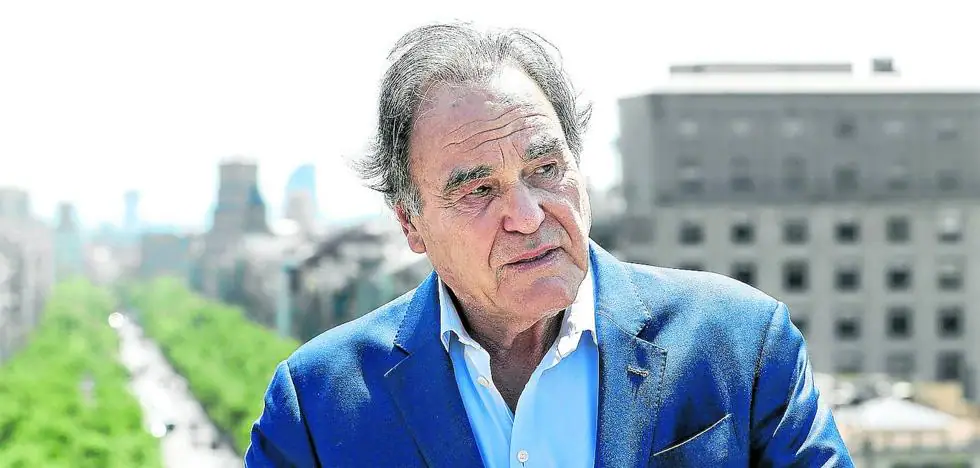The Cervantes Institute confirms the presence of Don Felipe at the IX Congress of the Spanish Language in Arequipa in March 2023. Queen Letizia will inaugurate in December the new Center of the Institute in Los Angeles, number 63 of the Institution, present in 92 cities from 45 countries
Spanish “is in good health” and it is up to the new generation of speakers to “strengthen” the validity of the language that unites more than six hundred million people. This is what King Felipe VI said in a speech he made this Tuesday before the board of directors of the Cervantes Institute, whose annual meeting was held at the Royal Palace of Aranjuez. The director of the Cervantes, Luis García Montero, expected the monarch to attend the IX Congress of the Spanish Language to be held in Arequipa (Peru), the birthplace of the writer, academic and Nobel Prize winner for literature Mario Vargas Llosa, in March 2023. Also that Queen Letizia will inaugurate the Institute’s new center in Los Angeles.
“I must confess that I read with satisfaction a statement from the Peruvian ambassador to Spain in which he proudly announced that the King of Spain would visit his country on the occasion of the Language Congress,” said García Montero. He reiterated that this meeting is the result “of a work of more than three years that justifies the language that brings together Miguel de Cervantes and the Inca Garcilaso, Blanca Varela, Mario Vargas Llosa, Gabriel García Márquez, José María Arguedas and Javier Marías”.
Both he and the director of the Royal Spanish Academy (RAE), Santiago Muñoz Machado, will go to Peru in November to present to the cultural authorities of the Andean country the proposal for a program that will focus on miscegenation and coexistence. of Spanish with other languages.
Before the meeting of the supervisory board, García Montero confirmed that Doña Letizia will inaugurate the new Cervantes Center in Los Angeles on December 12, under the direction of the writer Luisgé Martín. The center will join those in New York, Chicago and Albuquerque in the United States. Martín already has the support of a head of studies and an administrator to “seek agreements” with various institutions. It will be the 63rd center of this institution in 92 cities in 45 countries on five continents.
García Montero expected the Spanish Yearbook to be presented on October 26, while the new center in Seoul hopes it can go to the Council of Ministers for approval. He also argued that in the next general state budgets he expects the institution he leads to have 140 million euros, 6 more than the current budget, thanks to the 4.5 million euros increase in state transfers.
The Cervantes also plans to reopen the Gibraltar center closed in 2015 in 2023. “It depends not so much on our will, but on the EU’s relations with the United Kingdom,” he said. He also alluded to the complex situation of the Cervantes center in Moscow, where there is no director – the head was one of the diplomats expelled as a result of the war between Russia and Ukraine – and which is still open “with a very low level of activity”.
“The decision we have made in this crisis situation with Russia is not to close the center, but to wait quietly so that when the international relationship improves, we can return. It is about separating relations with a person as reprehensible as Putin from a country like Russia, because we have already seen the difficulties with the closures of Gibraltar and Syria, and if it were closed today, in three or four years “, raised.
He also referred to the launch of the Great Spanish Observatory in La Rioja, which has an allocation of nearly three million euros from PERTE, the Strategic Projects for Economic Recovery and Transformation. “We have asked in the new budgets to employ seven people to coordinate all the work,” the Cervantes director said.
The Institute had nearly 120,000 enrollments last year and recorded a 16.7% increase in DELE Spanish Diploma candidates (135,935 people). The number of candidates to pass the SIELE also increased by 29.5% (17,475 persons), while the number of candidates for the Constitutional and Socio-Cultural Knowledge Test (CCSE) decreased to 107,614 enrollees. A total of 6,744 cultural events took place this academic year.
Source: La Verdad
I’m Wayne Wickman, a professional journalist and author for Today Times Live. My specialty is covering global news and current events, offering readers a unique perspective on the world’s most pressing issues. I’m passionate about storytelling and helping people stay informed on the goings-on of our planet.



